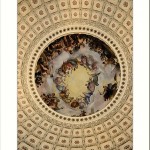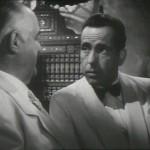About two decades ago, Donald Dayton and George Marsden had a bit of a kerfuffle over the latter’s book on Fuller Seminary. Marsden had emphasized the Reformed (i.e. New School Presbyterian) background of the school’s founding and Dayton, a non-Reformed Protestant who worked at Baptist and Wesleyan institutions, objected. Dayton believed that Marsden had bleached the Methodist and holiness hues out of mid-twentieth century neo-evangelicalism. Here is one way of describing the different interpretations:
These ‘memories’ centering on the fundamentalist-modernist schism only follow the destinies of intellectuals (mostly white-male, upper-class Calvinists: Edwards, Hodge, Machem, Carl Henry) and ignores the average Christ-follower of the time who didn’t care about the fundamentalist-liberal squabbles, i.e. most of America at the time. These ‘memories’ prioritize intellectual history at the expense of the common religious experience of people at the time.
And who were these ordinary people that were ignored? Well, they weren’t the well to do (educated and elite Calvinists and Liberals), but the middle- to lower-class Wesleyan-Holiness-Pentecostals who were engaged in on the ground ministry, and who to this day are still the majority of evangelicals (even though they’ve begun to believe they are sub-evangelicals in need of Reformed correction). As historian Joel A. Carpenter quips,
“In a reversal of the usual fate, where the winners write the history, the Calvinist “losers” in the competition for the American religious market have dominated the interpretation of its past. Perhaps the Wesleyan “winners” have been too busy making history to reflect upon it.”
With this distant dust up in mind, Randy Boyagoda took my breath away when I read his take on an exchange between Richard Mouw and Richard John Neuhaus prior to Neuhaus’ conversion:
Respondents to the book certainly too note of the intesnsity of Neuhaus’ Catholic interests, including Methodist theologian Richard Mouw, who wrote him in November 1987 to admit, no doubt speaking for many conservative Protestants during this period, “I continue to observe your work with interest. Privately, I am betting that you will do a Newman and go over to the Roman side one of these days.” (Richard John Neuhaus: A Life in the Public Square, 260)
Leaving aside Boyagoda’s narrative of Neuhaus’ conversion from Lutheranism to Roman Catholicism, his identification of Mouw as a Methodist is hilarious. After all, Mouw, reared in the world of Dutch-American Calvinism, had taught at Calvin College before becoming president of Fuller Seminary (and responsible in part for commissioning Marsden’s history of Fuller).
I guess from the other side of the Tiber, all Protestants look the same.












